Otolaryngologist Cover Letter Examples

May 29, 2025
|
12 min read
Tune your skills and make your otolaryngologist cover letter sing! Discover tips to create a pitch-perfect letter that resonates. Impress hiring managers in the field of ear, nose, and throat medicine with your expertise and experience.
Rated by 348 people
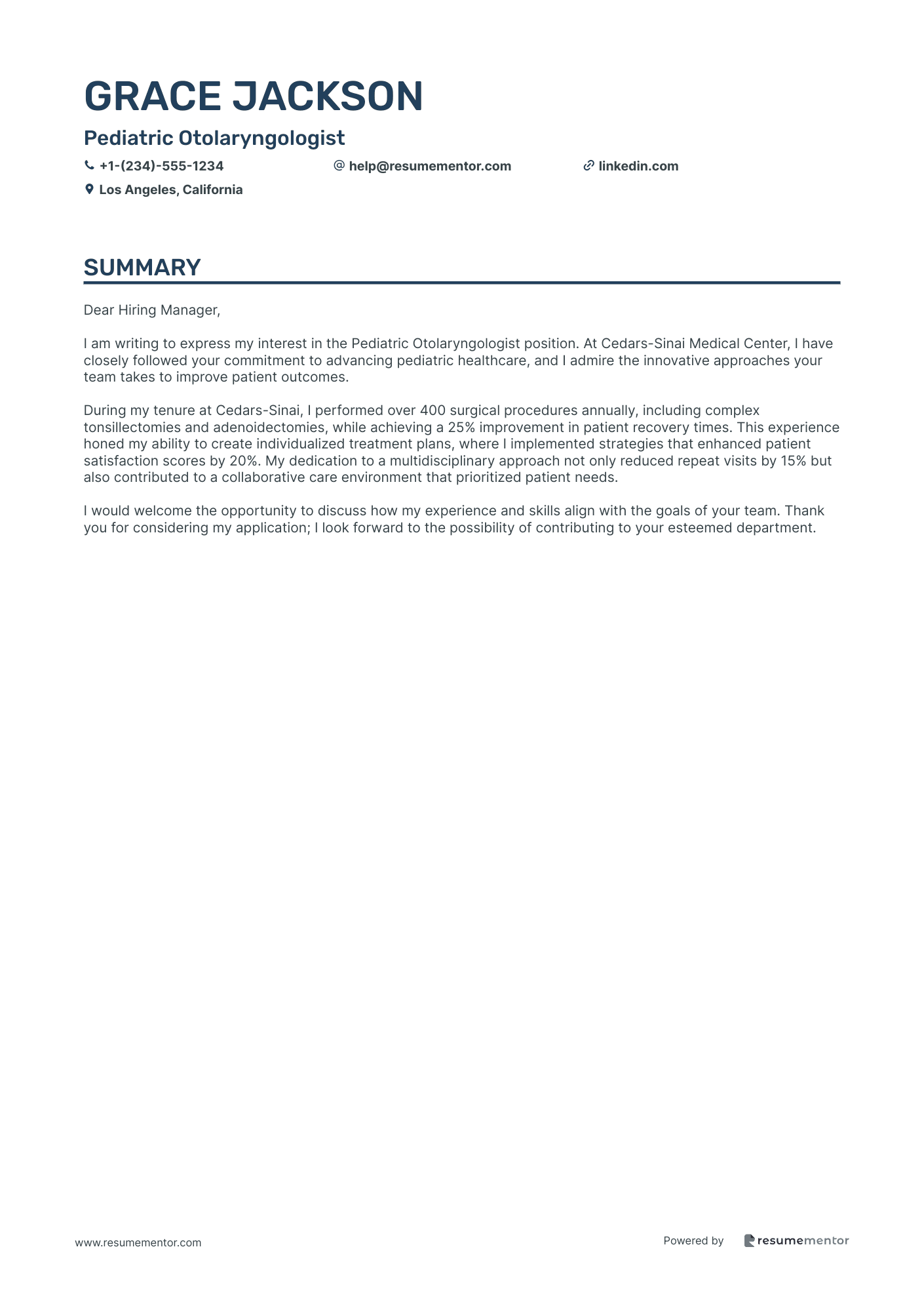
Pediatric Otolaryngologist
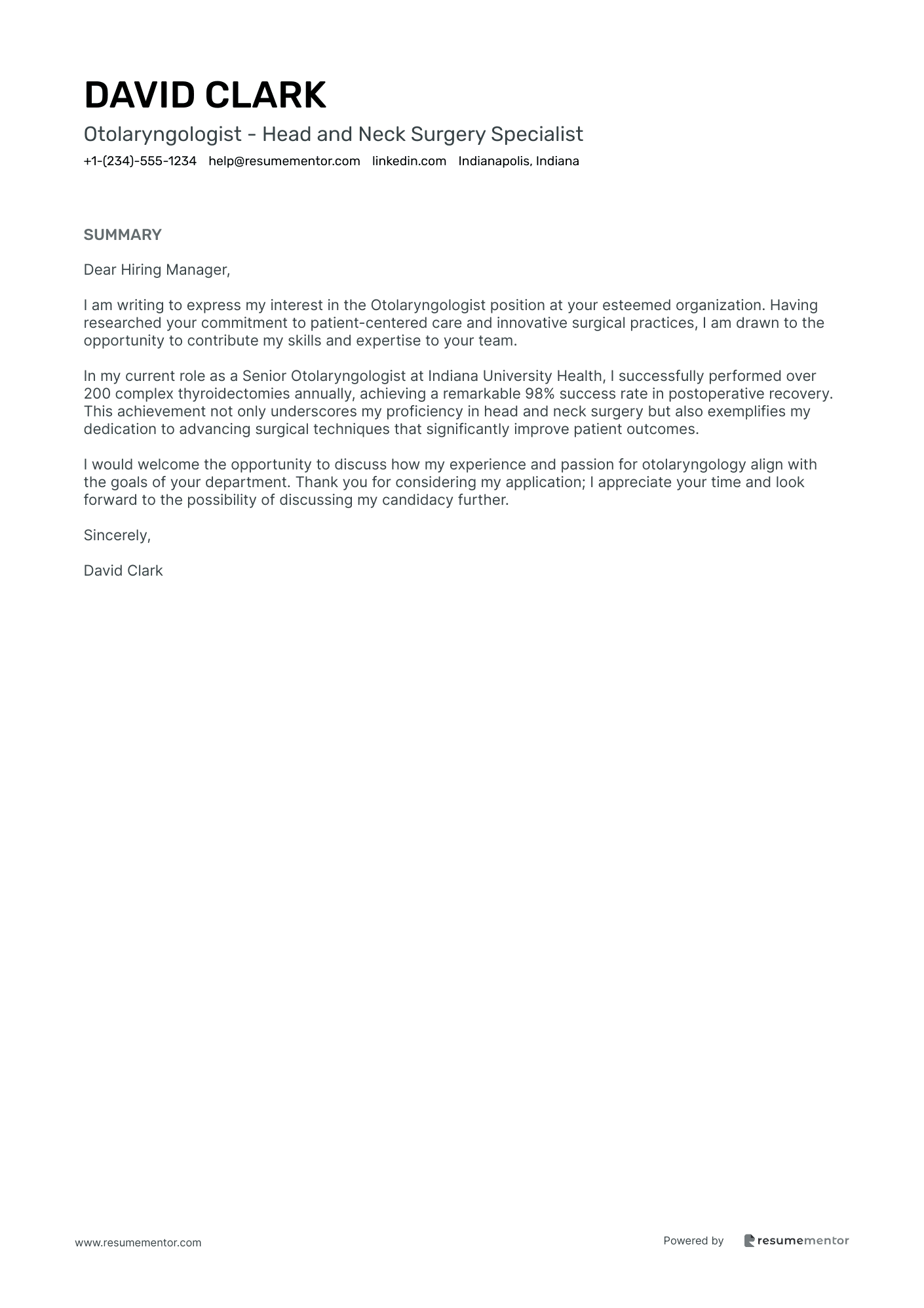
Otolaryngologist - Head and Neck Surgery Specialist
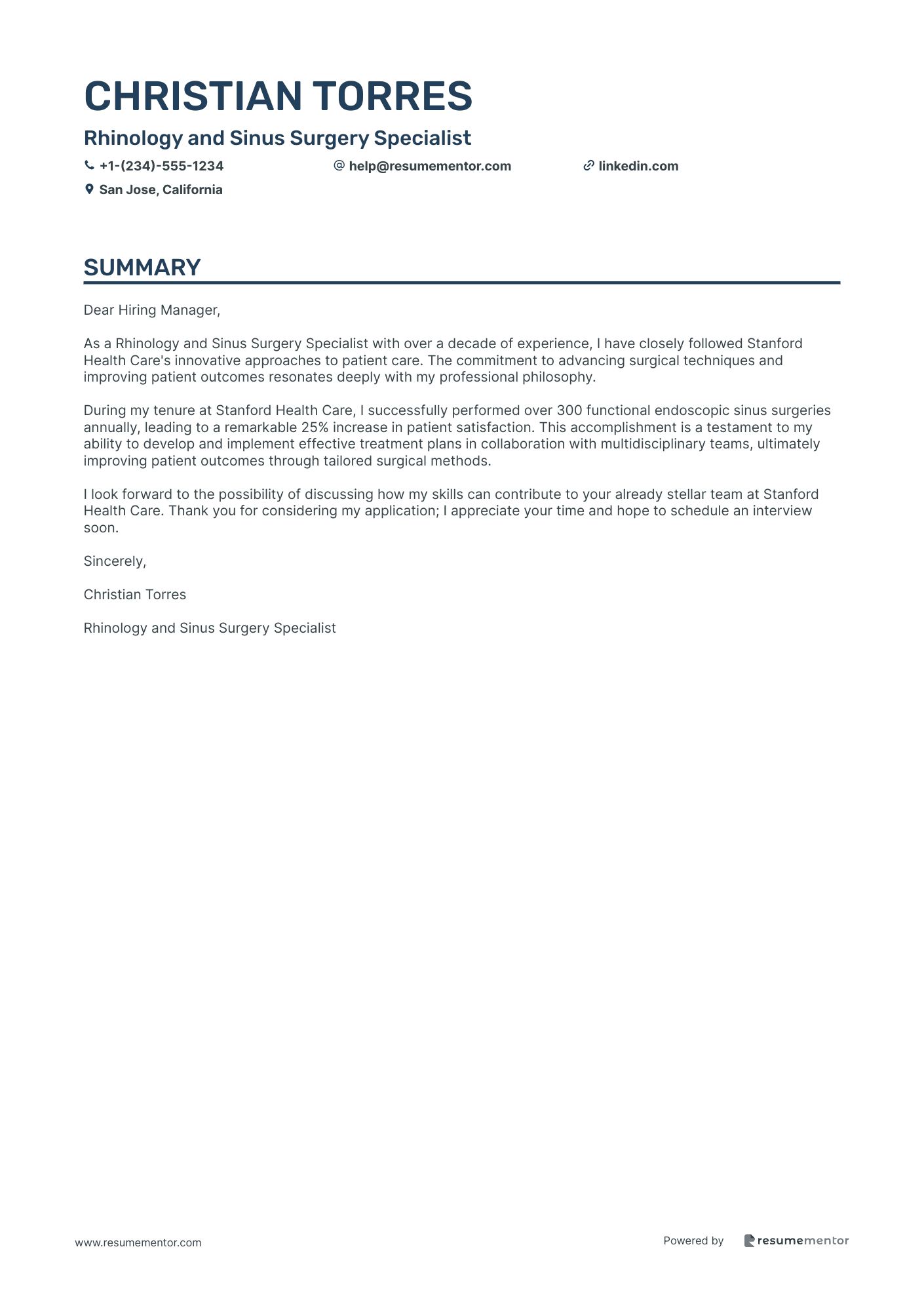
Rhinology and Sinus Surgery Specialist
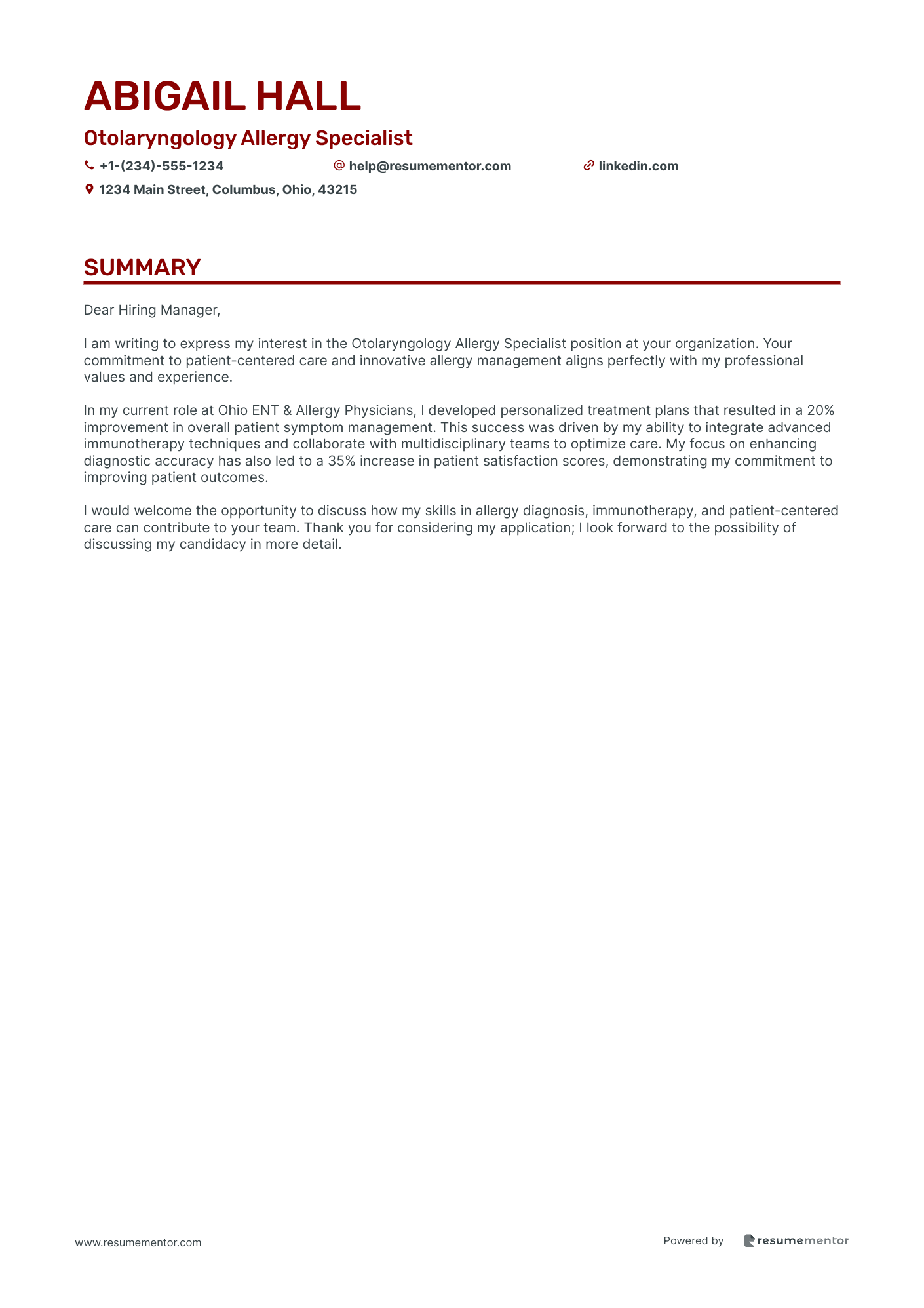
Otolaryngology Allergy Specialist
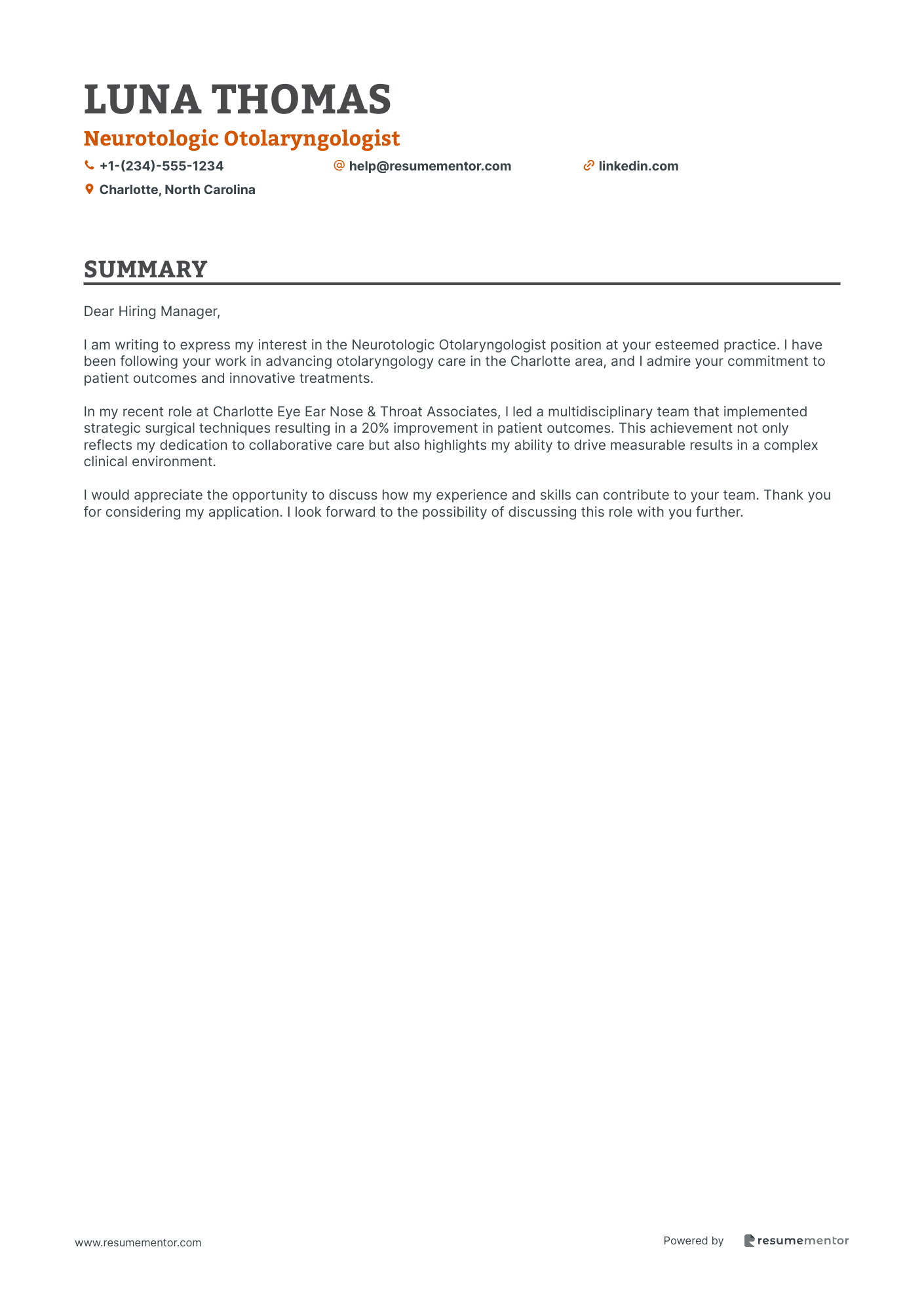
Neurotologic Otolaryngologist
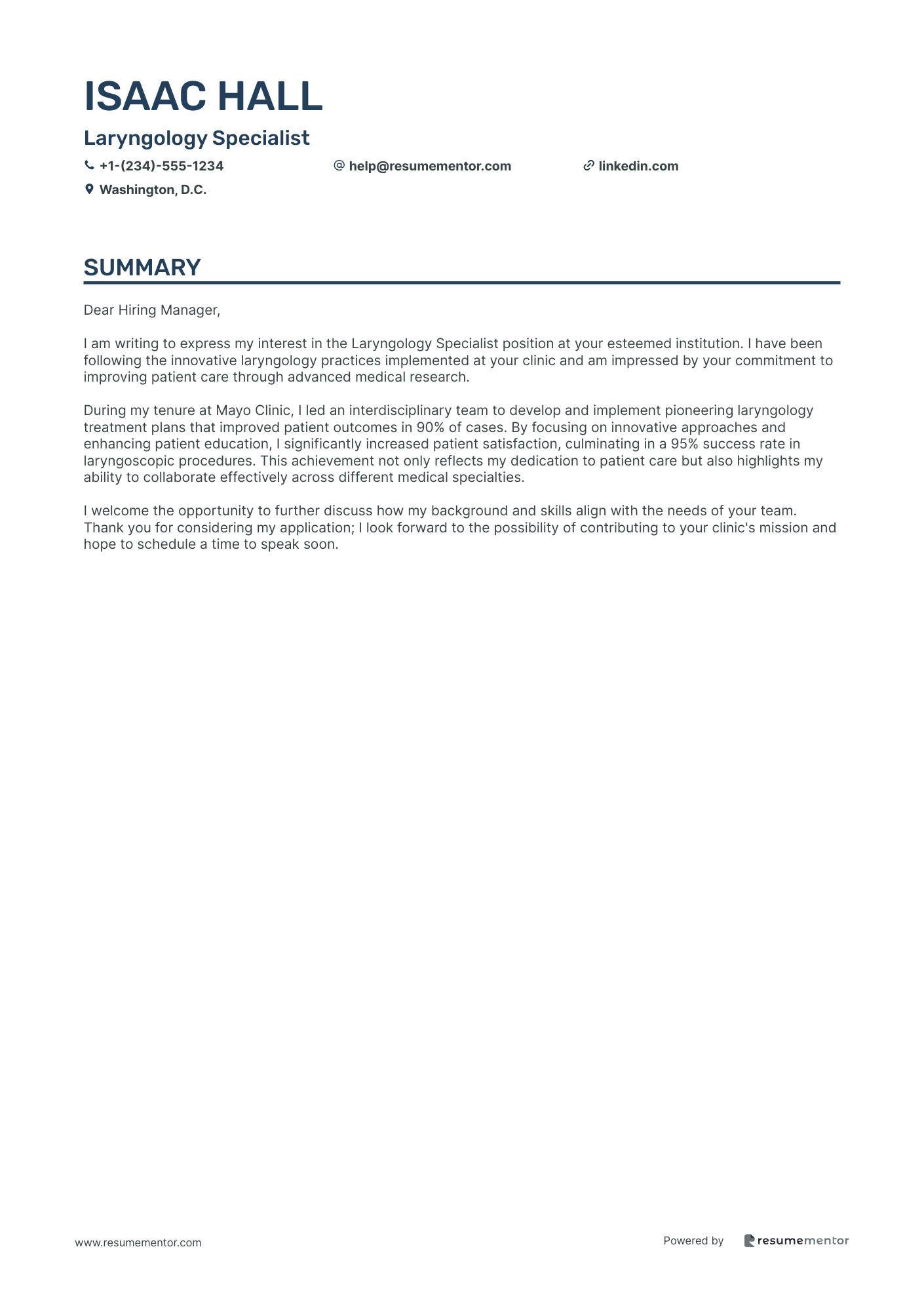
Laryngology Specialist
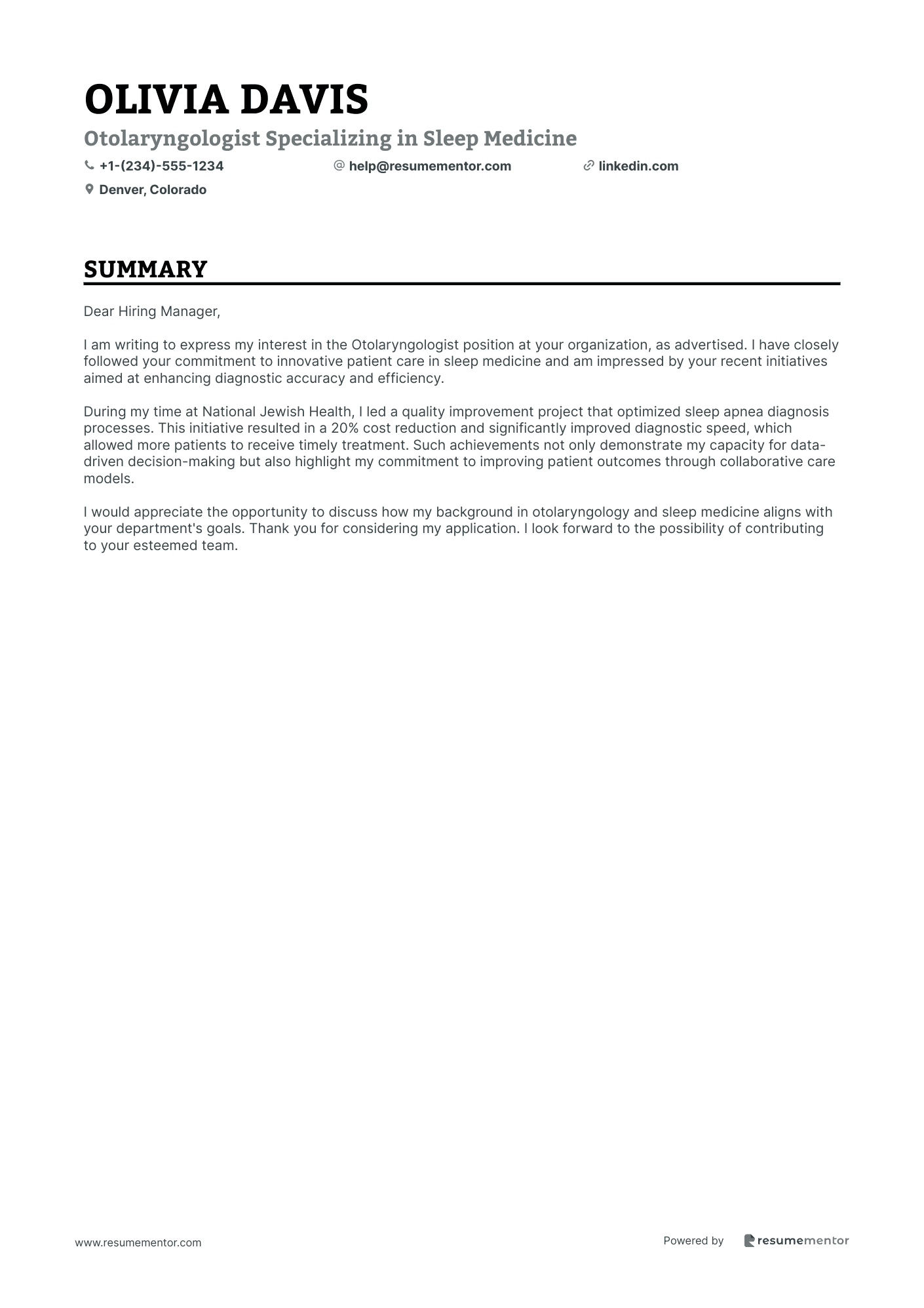
Otolaryngologist Specializing in Sleep Medicine
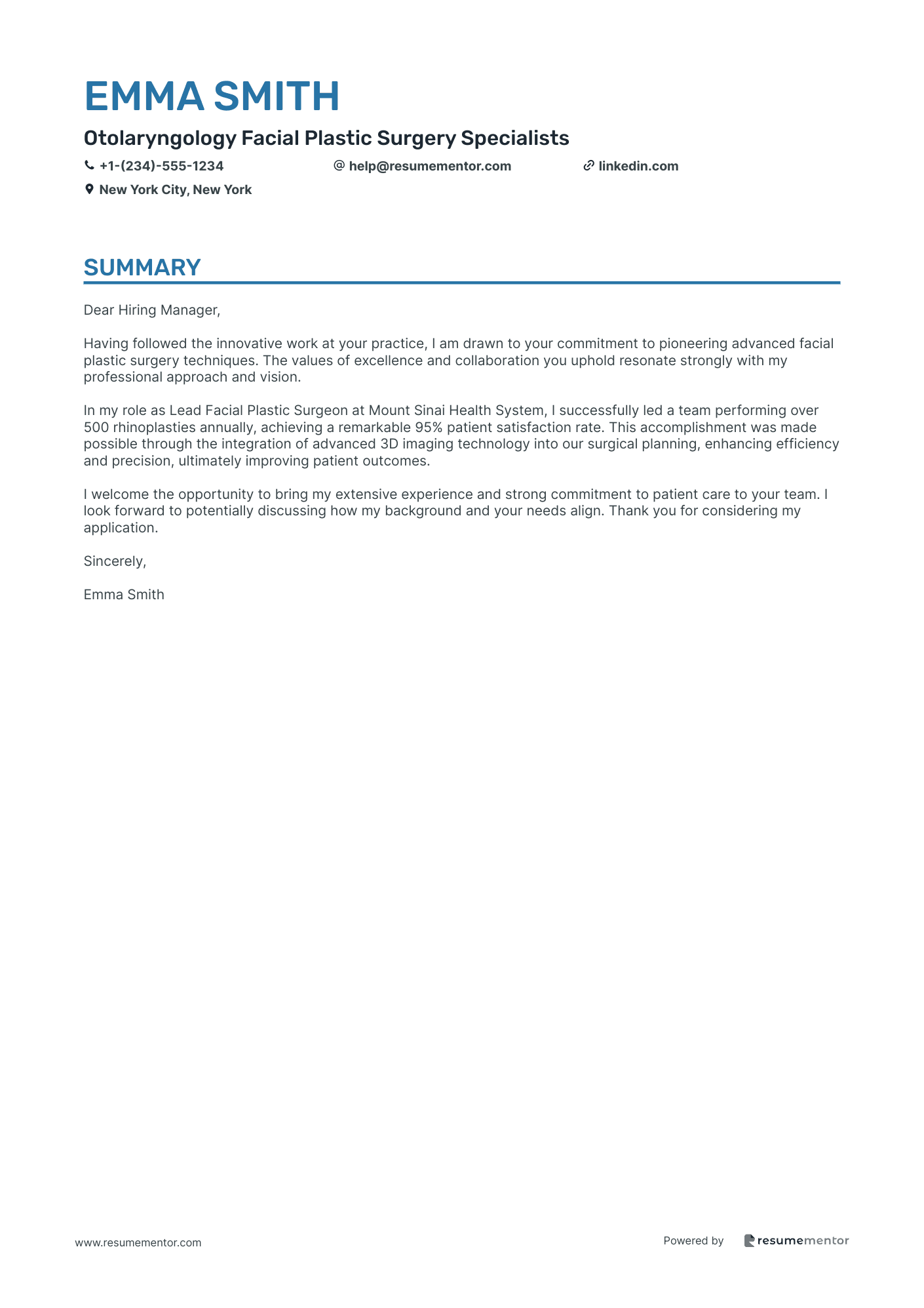
Otolaryngology Facial Plastic Surgery Specialists
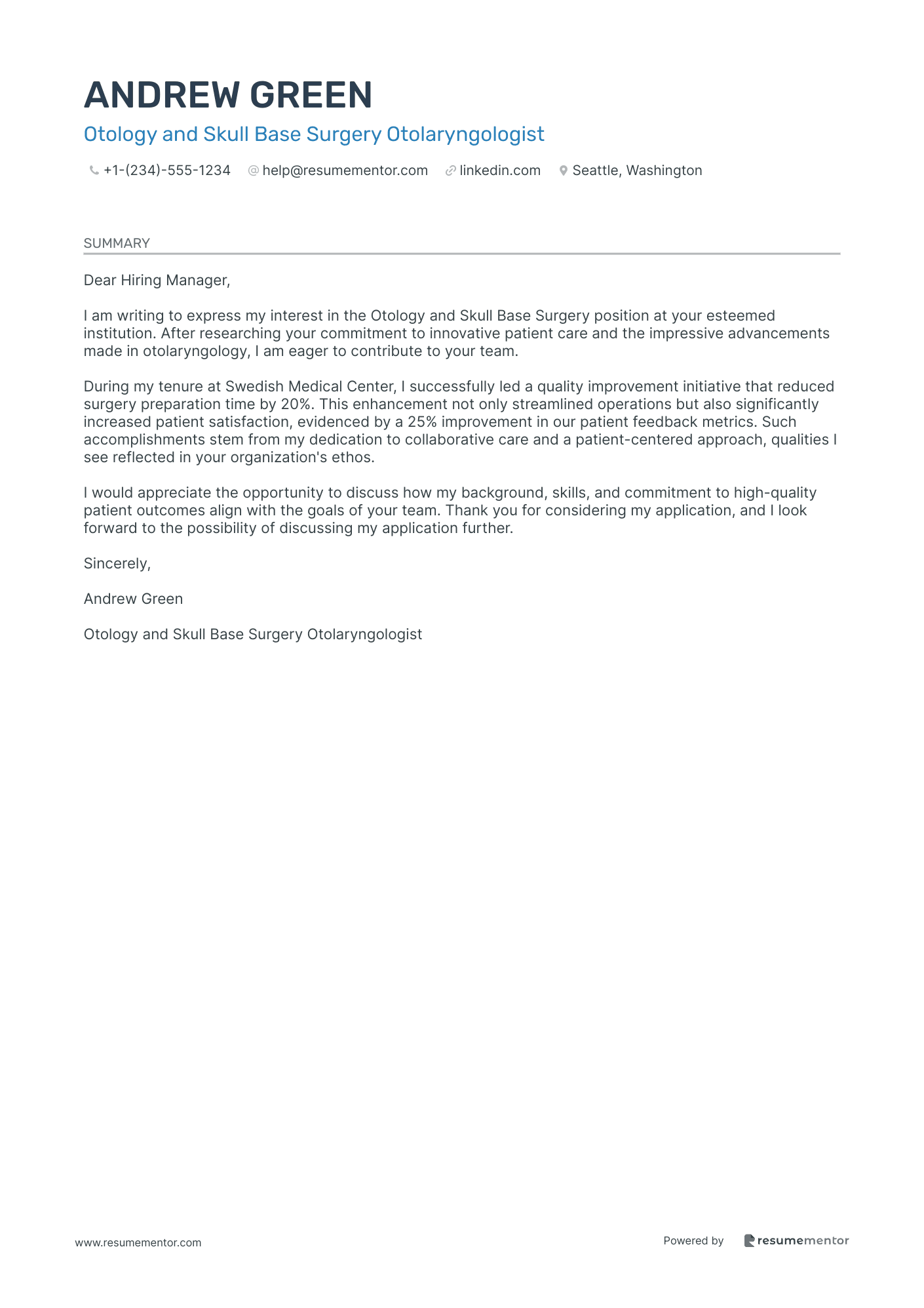
Otology and Skull Base Surgery Otolaryngologist
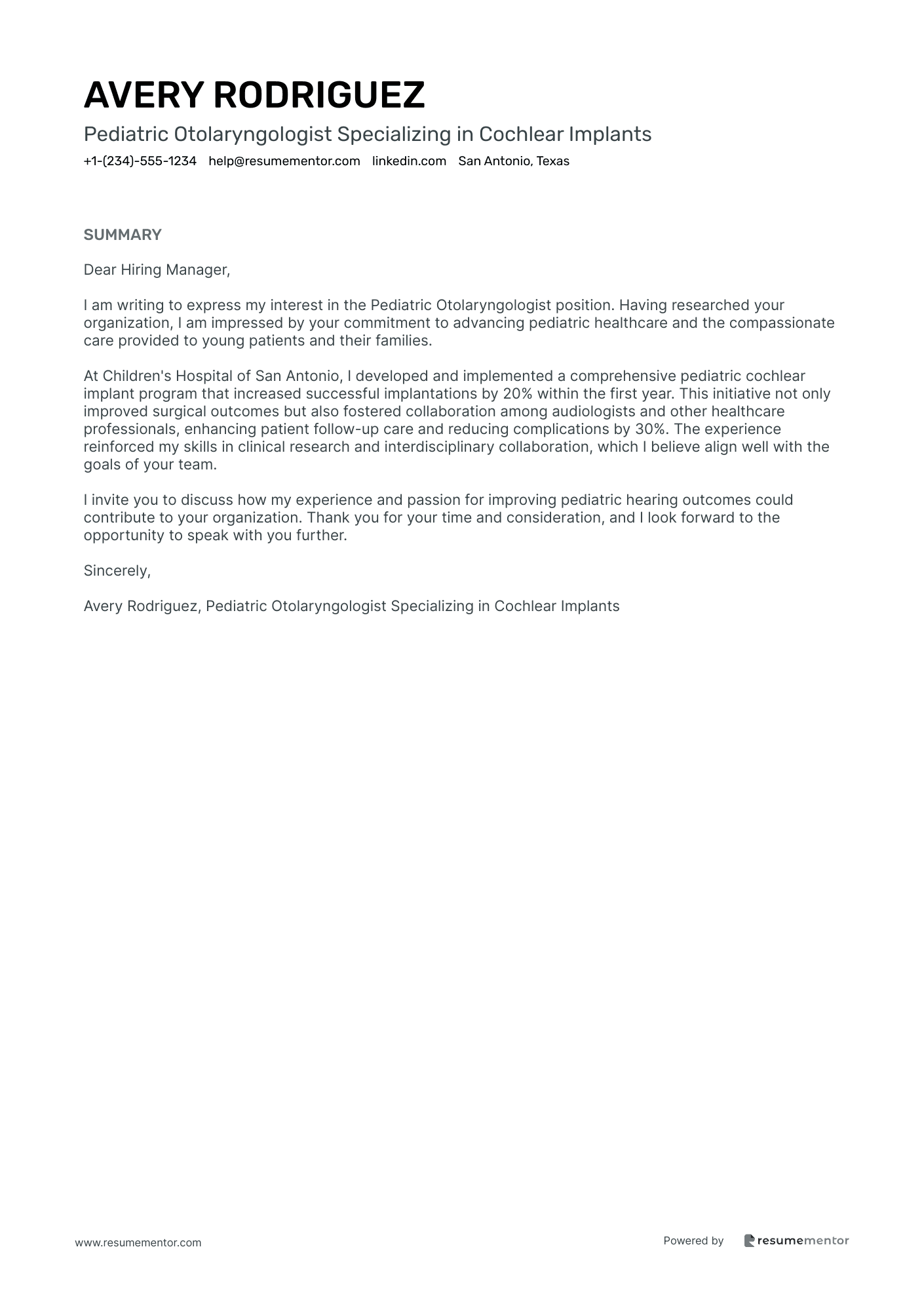
Pediatric Otolaryngologist Specializing in Cochlear Implants

Pediatric Otolaryngologist cover letter sample
Otolaryngologist - Head and Neck Surgery Specialist cover letter sample
Rhinology and Sinus Surgery Specialist cover letter sample
Otolaryngology Allergy Specialist cover letter sample
Neurotologic Otolaryngologist cover letter sample
Laryngology Specialist cover letter sample
Otolaryngologist Specializing in Sleep Medicine cover letter sample
Otolaryngology Facial Plastic Surgery Specialists cover letter sample
Otology and Skull Base Surgery Otolaryngologist cover letter sample
Pediatric Otolaryngologist Specializing in Cochlear Implants cover letter sample
Related Articles

Continue Reading
Check more recommended readings to get the job of your dreams.
Resume
Resources
Tools
© 2026. All rights reserved.
Made with love by people who care.
